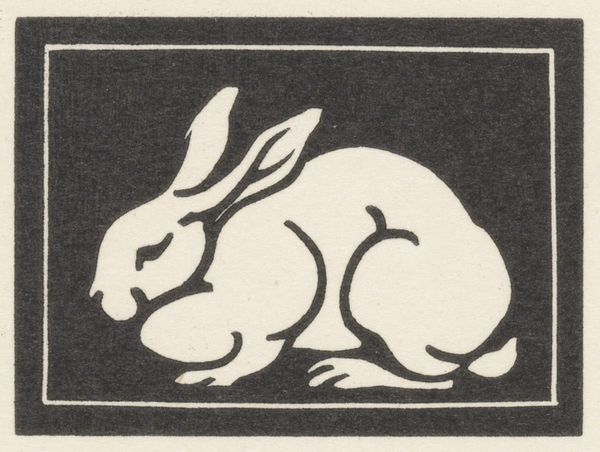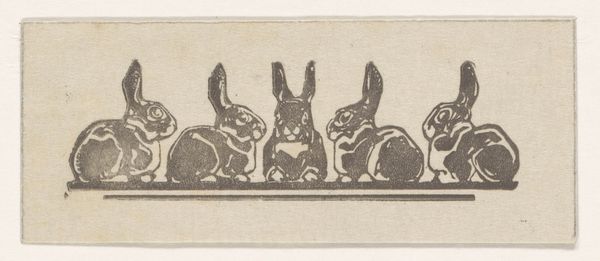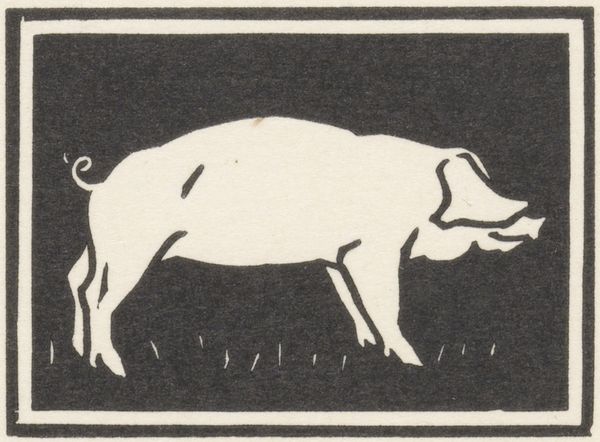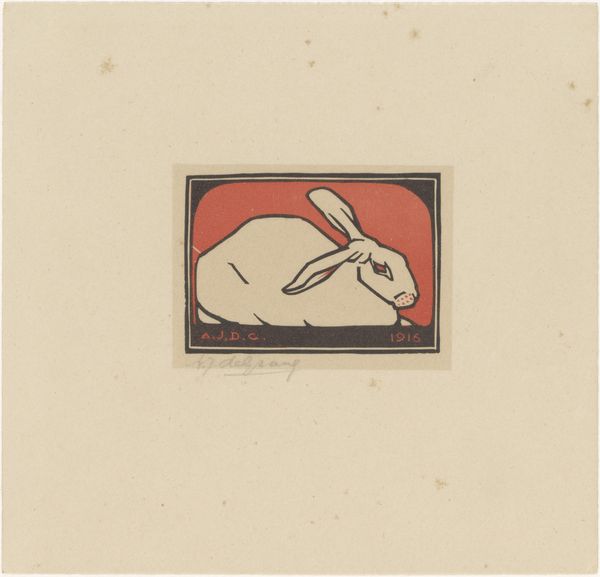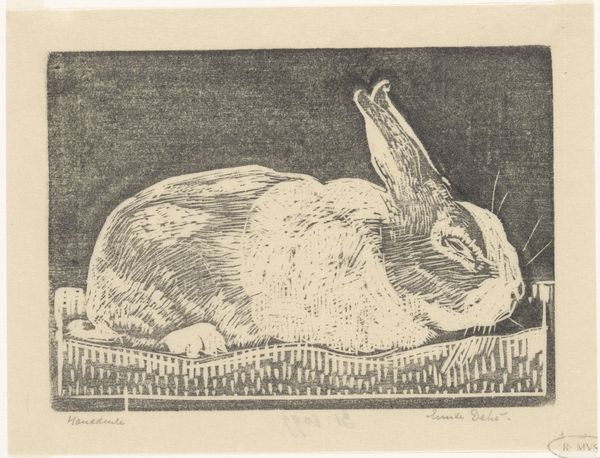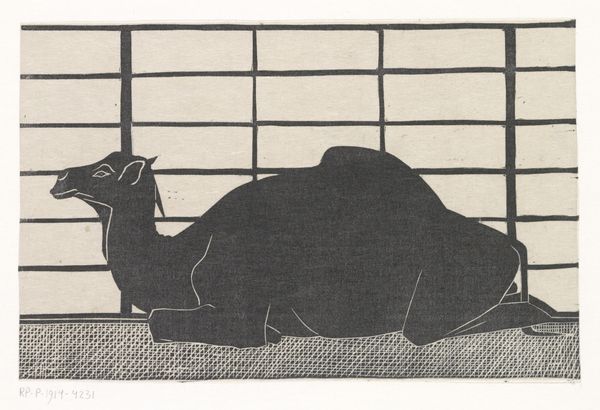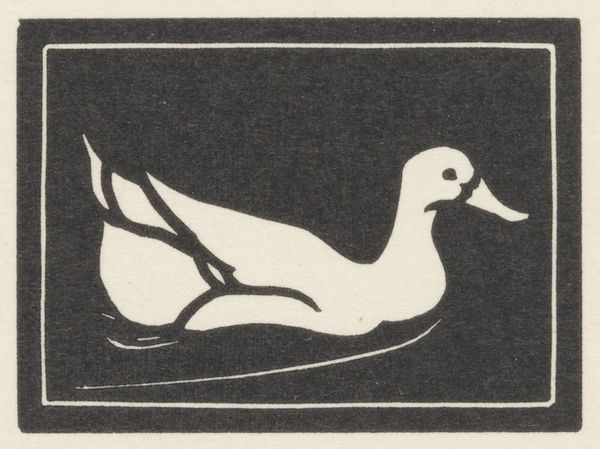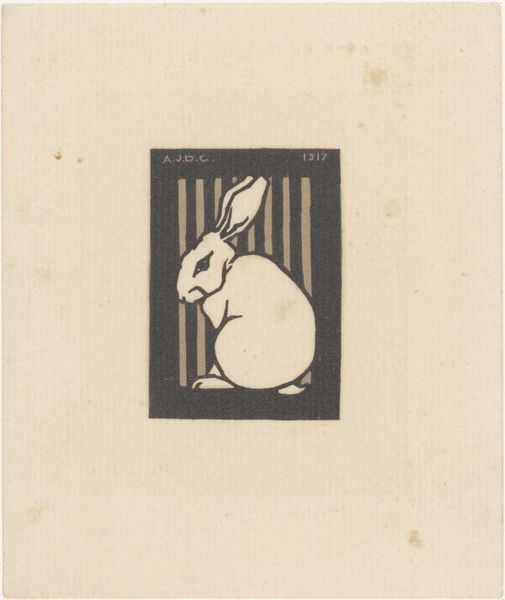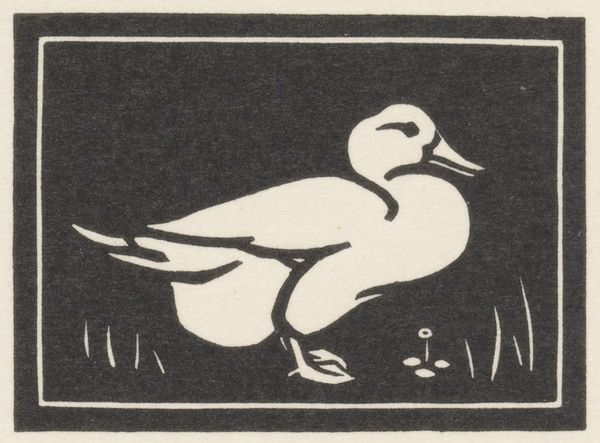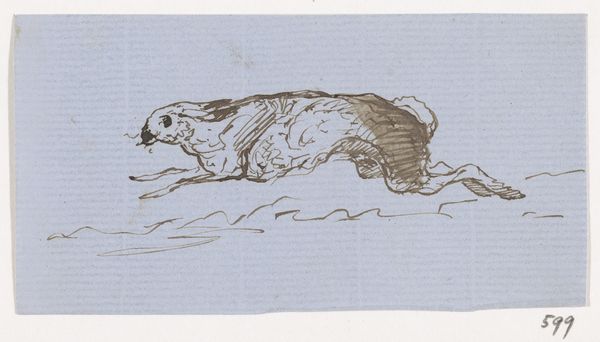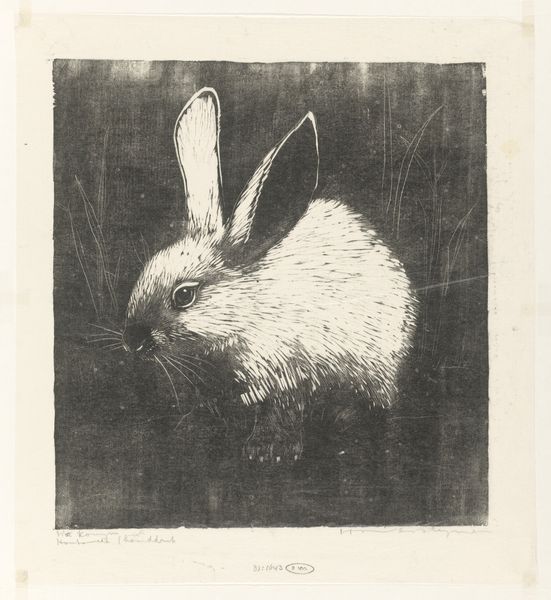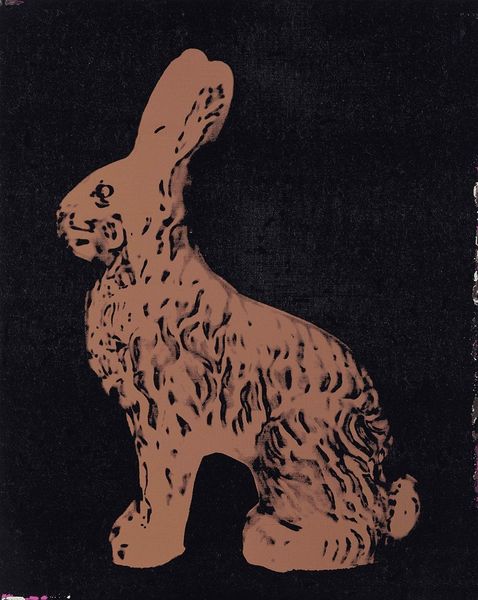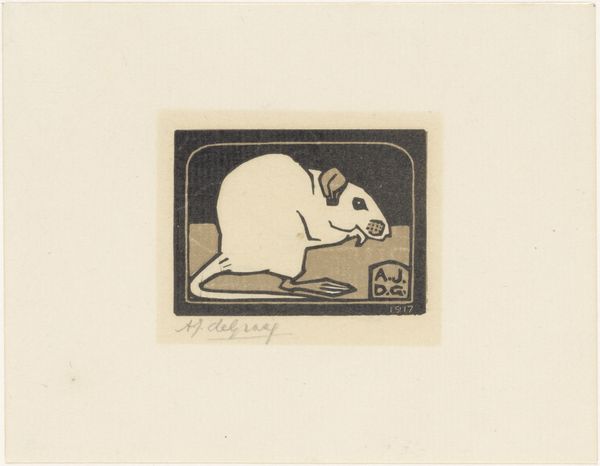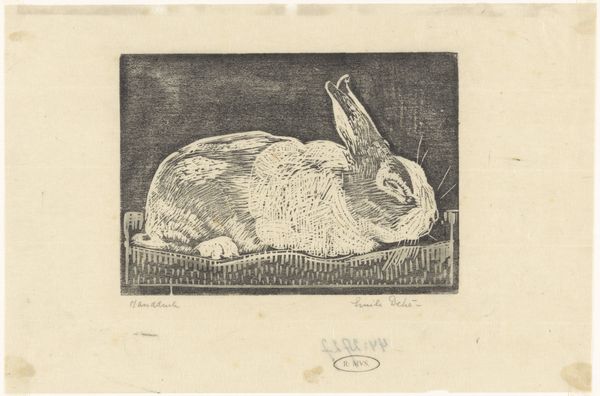
drawing, print, woodcut
#
drawing
# print
#
geometric
#
woodcut
Dimensions: height 238 mm, width 153 mm, height 40 mm, width 55 mm
Copyright: Rijks Museum: Open Domain
Editor: Here we have Julie de Graag’s "Twee konijnen," or "Two Rabbits," a woodcut print from 1923-24. It’s so simple, almost a logo. What can you tell us about its impact, its presence here at the Rijksmuseum? Curator: This print, precisely because of its simplicity, offers a powerful statement about art’s role during a period of significant social upheaval. Remember the aftermath of World War I, and the changing role of women like de Graag entering artistic spaces? It begs us to consider this work in relation to art education reform, in particular. Do you notice the almost childlike rendering of the rabbits? Editor: Yes! It’s quite striking, not aiming for realism at all. Curator: Exactly. This simplified, almost geometric style aligns with a broader movement rejecting academic tradition in favor of more accessible forms, particularly visible in applied arts. Think about the Werkplaats Kinderrechten. These new spaces of learning pushed simplified styles promoting universal access to design, and economic empowerment. Editor: So the image of the rabbits, rendered this way, becomes part of a larger social program? Curator: Precisely. De Graag’s work can be viewed as contributing to a visual language aimed at shaping a more egalitarian society through accessible art. Does knowing this impact your view of the work? Editor: Definitely. I initially saw it as a charming, almost quaint image. Now I recognize a connection to a broader societal ambition. Curator: And that’s exactly how considering art within its historical and social contexts can deepen our understanding of its intended purpose and lingering effects. Editor: Thanks! Thinking about those visual politics gave me a totally new lens. Curator: Likewise!
Comments
No comments
Be the first to comment and join the conversation on the ultimate creative platform.
